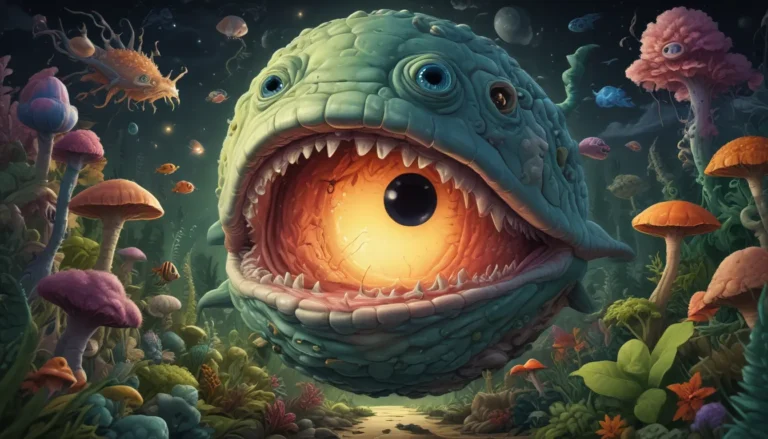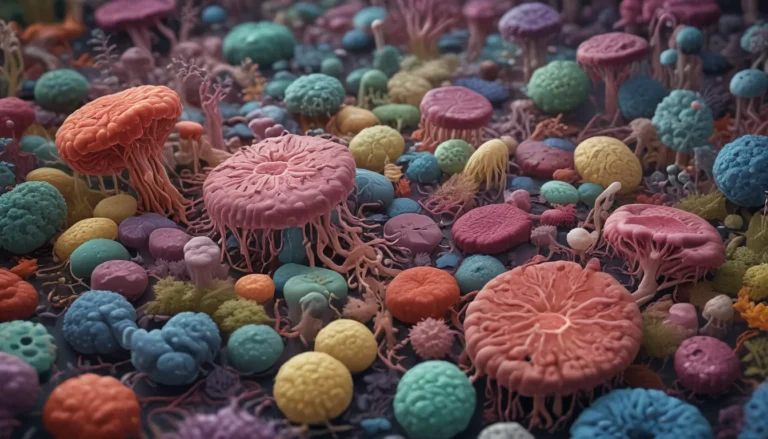A Note About Images: The images used in our articles are for illustration purposes only and may not exactly match the content. They are meant to engage readers, but the text should be relied upon for accurate information.
Welcome to the captivating realm of ecotoxicology, a field dedicated to unraveling the impacts of toxins and pollutants on our environment. With a blend of ecology and toxicology principles, ecotoxicology delves into the intricate relationships between contaminants and living organisms. Join us on a journey to uncover 14 astounding facts about ecotoxicology that shed light on the importance of studying and addressing the effects of pollution on our planet’s health and biodiversity.
Understanding the Essence of Ecotoxicology
Ecotoxicology serves as a vital branch of environmental science, focusing on how chemicals and substances influence ecosystems and the creatures within them. By evaluating the risks posed by toxic substances, ecotoxicologists play a crucial role in developing strategies to safeguard ecosystems and biodiversity.
Delving Into the Insights of Ecotoxicology
- Assessing Risk: Through meticulous study of pollutants’ effects on various organisms, ecotoxicologists can identify potential risks and establish measures to mitigate them.
- Acute and Chronic Effects: Ecotoxicologists explore both short-term (acute) and long-term (chronic) impacts of pollutants on organisms, offering valuable insights into their consequences.
- Trophic Levels Consideration: From primary producers to top predators, ecotoxicology examines how pollutants influence organisms across different trophic levels in the food chain.
- Diverse Range of Pollutants: Ecotoxicologists investigate the effects of various pollutants like chemicals, heavy metals, pesticides, and pharmaceuticals on ecological systems.
The Role of Ecotoxicology in Environmental Protection
- Guiding Regulations: Findings from ecotoxicology studies provide essential information for policymakers in formulating guidelines and protocols to preserve our environment.
- Contribution to Conservation: Ecotoxicologists aid in prioritizing conservation efforts by quantifying the adverse effects of pollutants on ecosystems.
The Multidisciplinary Nature of Ecotoxicology
Drawing knowledge from toxicology, ecology, chemistry, microbiology, genetics, and environmental science, ecotoxicology offers a comprehensive understanding of pollutant impacts on biological systems.
Ecotoxicology’s Impact on Biodiversity and Water Quality
- Biodiversity Conservation: By analyzing pollutants’ effects on vulnerable species and habitats, ecotoxicologists contribute significantly to preserving biodiversity and ecosystem health.
- Water Quality Assessment: Monitoring pollutants in aquatic ecosystems is a vital aspect of ecotoxicology, ensuring the maintenance of freshwater resources.
Looking Towards a Sustainable Future With Ecotoxicology
- Safer Chemicals Development: Ecotoxicologists aid in producing environmentally friendly chemicals by understanding toxicological effects.
- Predicting Future Impacts: Studying pollutants’ long-term effects on reproduction and genetic health allows ecotoxicologists to provide insights into potential risks for future generations.
Embracing the Challenges and Rewards of Ecotoxicology
Ecotoxicology serves as a beacon of knowledge in navigating the complexities of environmental contamination, highlighting the urgent need for action and sustainable practices. By fostering a deeper understanding of ecotoxicology, we pave the way for a healthier, more harmonious coexistence with our planet.
Unveiling the Path to Environmental Conservation
As we embark on this enlightening journey through the realm of ecotoxicology, let us remember the pivotal role it plays in safeguarding our environment for generations to come. By integrating the profound insights gleaned from ecotoxicological studies into our decision-making processes, we can strive towards a more sustainable future and ensure the well-being of all living beings.
Embrace Ecotoxicology: Shaping a Sustainable Tomorrow
Join us in our quest to explore the depths of ecotoxicology and unearth its transformative potential in shaping a sustainable future. Let every fact we uncover serve as a stepping stone towards environmental stewardship and a brighter tomorrow for all.
FAQs
-
What is ecotoxicology?
Ecotoxicology involves studying how chemicals and pollutants impact living organisms and ecosystems, shedding light on the effects of toxic substances on plants, animals, and the environment. -
Why is ecotoxicology important?
Ecotoxicology is vital for understanding the risks posed by environmental contamination and developing strategies to minimize harm, safeguard ecosystems, and protect the environment. -
How do ecotoxicologists assess the effects of pollutants?
Through a range of methods including laboratory experiments, field studies, and mathematical models, ecotoxicologists quantify toxicity, bioaccumulation, and ecological impacts to evaluate the harm caused by toxic substances. -
What are some examples of ecotoxicological studies?
Ecotoxicological studies encompass investigating the effects of pesticides on bee populations, pollution impacts on fish reproduction, and consequences of oil spills on marine ecosystems. -
How can we apply ecotoxicology in real-life situations?
Ecotoxicology findings inform policy-making, promote safe and sustainable practices, and guide decision-making across industries such as agriculture, pharmaceuticals, and waste management.
Together, Let’s Champion Environmental Conservation
As we embrace the challenges and rewards of ecotoxicology, let us stand united in our dedication to preserving our planet’s precious ecosystems. Through knowledge, action, and a shared commitment to environmental sustainability, we can pave the way for a brighter, more harmonious future for all.





